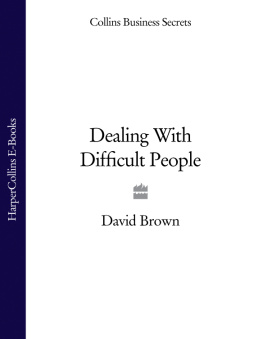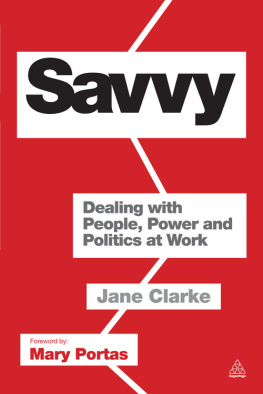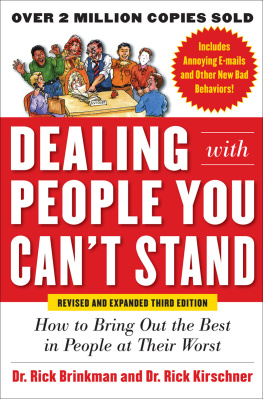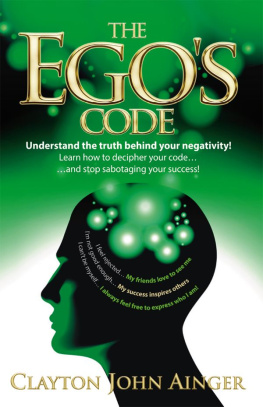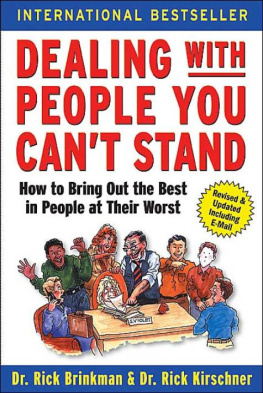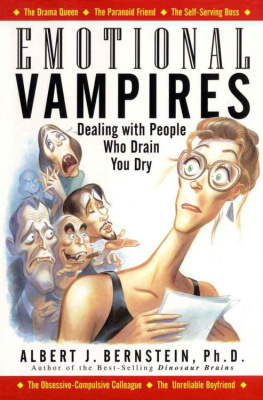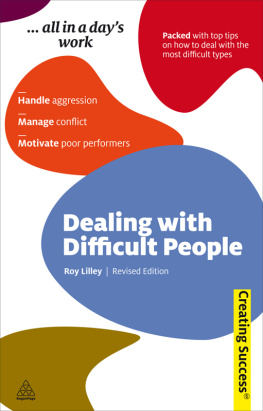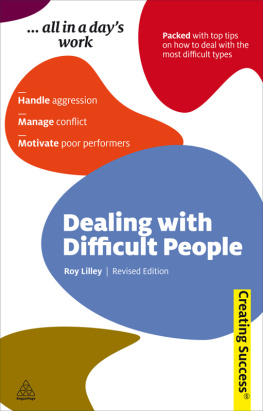Insights on Les T. Giblin's How to Have Confidence and Power in Dealing With People
Insights from Chapter 1
#1
The Big Factor that determines success and happiness is other people. If you learn how to deal with other people, you will have gone about 85 percent of the way down the road to success in any business, occupation, or profession, and about 99 percent of the way down the road to personal happiness.
#2
The only way to get along with people is to get along with them in a way that is personally satisfying and not trample on the egos of those you deal with. Human relations is the science of dealing with people in such a way that your egos and their egos remain intact.
#3
The Bureau of Vocational Guidance at Harvard University conducted a study of thousands of men and women who had been fired. For every one person who lost his job because he failed to do the work, two people lost their jobs because they failed to deal successfully with people.
#4
There are millions of people today who are self-conscious, shy, and timid, and they never realize that their real problem is a human relations problem. They fail to realize that their failure as a personality is really a failure in learning to deal successfully with other people.
#5
The modern world is full of people who are trying to make horse-and-buggy methods work in an atomic age. As civilization progresses, new inventions shrink our world smaller and smaller, and our economic life becomes more specialized and complicated.
#6
The skills needed in todays world are not just technical skills, but also skills in dealing with people. For example, the Crockett familys skill in handling Old Betsy was almost all that they needed. But even technical skill today takes a back seat to skill in dealing with people.
#7
The field of engineering is one that seems to rely on technical skill alone, but Purdue University kept records of its engineering graduates over a period of slightly more than five years. The earnings of those who made the highest marks in school were compared with the earnings of those who made the lowest marks. There was barely $200 per year difference.
#8
People are a necessity in any successful endeavor. The person who enjoys the most success is not necessarily the most intelligent or skilled. The salesperson who sells the most goods and has the most fun doing it is not necessarily the prettiest.
#9
There are many methods and techniques that work in getting along with others, and getting what you want. They are the same old techniques that have been written about for years, but with one big difference. They are applied not superficially, but with an understanding of human nature.
#10
The skill of human relations is similar to that of any other field, in that success depends on understanding and mastering certain basic general principles. You must not only know what to do, but why youre doing it. Dont be a Johnny-One-Note.
#11
The human ego is a precious thing to its possessor, and people will go to great lengths to defend what they believe are threats to it. The word egotism has become a bad word because it is used to describe someone who is excessively self-centered.
#12
Egotism is the belief that you are important because of what you have done or how good you are, rather than because of Gods grace in endowing you with a certain innate worth.
#13
When you are going to deal with people, whether they are children, spouses, neighbors, bosses, workers, or convicts, you should imprint the following indelibly on your mind: We are all ego-hungry. And it is only when this hunger is at least partially satisfied that we can forget ourselves and focus on something else.
#14
The egotist is not suffering from too much self-esteem, but too little. If you are on good terms with yourself, you are on good terms with others. The egotist is not self-centered because he has too much self-esteem, but because he lacks it.
#15
When self-esteem is high, people are easy to get along with. When it is low, however, people are difficult to deal with. The so-called sensative souls who see some dig or double-meaning in even the most innocent remark are suffering from low self-esteem.
#16
The First Law of Human Relations states that people act or fail to act based on how they enhance their own egos. When trying to persuade another person to act a certain way, appeal to his ego.
#17
The Kings Principle can be used to persuade anyone, even kings. When General Oglethorpe wanted permission to found a colony in the New World, he appealed to the Kings humanity and made all sorts of appeals with good reasons. But the King was not moved by them. Finally, Oglethorpe changed his strategy and sold the idea of a new colony named Georgia.
#18
I was once in a southern city where a national convention was taking place. I went around to a hotel where I had previously stayed, and was told there was nothing they could do for me because of the convention. The desk clerk said, If anyone can solve this problem, its me.
#19
We are all egotists. We are all more interested in ourselves than in anything else in the world. Every person you meet wants to feel important and to amount to something.
#20
You are a millionaire in human relations. The great tragedy is that too many of us hoard this wealth, or dole it out stingily. Or even worse, we dont even realize we have it.
#21
The quickest way to improve your human relations is to begin giving away your wealth. Dont be stingy with it. Dont dole it out. Dont play favorites. It doesnt cost you anything, and you dont have to fear you'll ever use it all up.
#22
Courtesy, politeness, and what we call manners are all based on the universal hunger people have to feel that they have some personal worth. Remember the headlines when a premier of a foreign country called to keep an appointment with a cabinet officer in Washington, and was kept waiting five minutes past the time of the appointment.
#23
To be successful in dealing with others, we must recognize them as a bona fide, real human being. We must give credit for work, correct grievances, encourage others, and ask for their opinions.
#24
The first rule of getting along with other people is to believe that they are important. If you believe that other people are important, you will have the most influence over them.
#25
The secret to getting along with children is to notice them. They crave to be noticed, and they will tell you if you dont pay attention to them. They will go to great lengths to get your attention, from knocking over lamps to twisting their siblings arms.
#26
The most common complaint of spouses is not being noticed. You can cure this by giving your spouse more attention. Criminologists say that many crimes are committed by people who never had their craving for being noticed satisfied.
#27
The third rule for letting the other person know that you recognize his importance is to not use your own importance to your disadvantage. Remember that everyone needs to feel important and feel that others recognize their importance.
#28
When you correct someone, make sure it is for a purpose. If you are not making a real difference whether he is right or wrong, do not bother correcting him.
#29
Dont be stingy with your attention when it comes to feeding the hunger for a feeling of importance. Dont underestimate the importance of small courtesies such as being on time for an appointment.
Insights from Chapter 2
#1
We all have the power to control the actions of others, and we often use this power for good or evil. The only choice we have is whether we will use this power for our benefit or our disadvantage.


